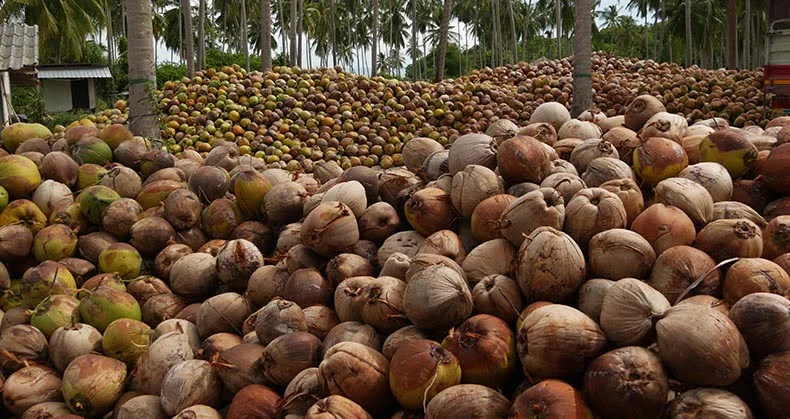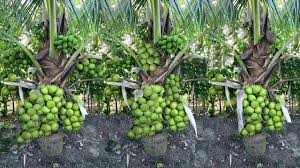The Lagos State Coconut Development Authority (LASCODA) has disclosed that the country produces between 265,000 and 300,000 metric tonnes of coconut annually, accounting for 25% of the nation’s growing domestic demand, just as the Cowpea and Beans Farmers, Processors and Marketers Association of Nigeria (C&BFPMAN) has revealed that Nigeria has prospects for high yield for the crop.
A former General Manager of LASCODA, John Olakulehin, said a critical three-tiered problem within the sector borders on production, processing and marketing process. “Our coconut demand is exploding, but domestic production is stagnant. We are importing what we should be exporting. 70% of coconuts consumed in Nigeria are sourced from Ghana, Côte d’Ivoire, The Gambia and Philippines. These import trends cost Nigeria billions of naira annually”, he said.
An agricultural economist, Dr. Chinelo Obasi, explained that Nigeria’s coconut value chain has the potential to generate over N500 billion annually, if properly structured, and “This includes upstream farming, midstream processing and downstream export. But the sector remains largely informal, under-capitalised and fragmented”. A Lagos-based food scientist, Ben Odion, expressed concern over the growing sale of fake coconut oil in Nigerian markets, saying “Because of high demand, some producers mix coconut oil with paraffin, palm kernel oil or chemical thickeners to increase volume and profits. This not only puts consumers at risk, but also damages the credibility of genuine local producers.

Meanwhile, the Cowpea and Beans Farmers, Processors and Marketers Association of Nigeria (C&BFPMAN) has stated that high yield, among other factors, are responsible for the drop in the price of the produce in the country, even as the President of C&BFPMAN has given reasons for the price decline. The News Agency of Nigeria reports that as at the second and third quarters of 2024, the price of beans increased astronomically to between N210,000 and N240,000 for 100kg as against N90,000 that it was sold in 2023. From the first quarter of 2025, the produce witnessed a steady decline in price, as a bag of 100kg now sells between N80,000 and N120,000, depending on the species.
The C&BFPMAN President, Kabir Shuaibu, said increased harvest was the reason for the drop in price. “We are glad the price of beans and cowpeas in general has dropped since the harvest from last year. We harvested over 10 times what we usually harvested in the past years. The main reason for the drop in price is the increase we got from our cultivation. This implies that with increased supply of the produce, the price will drop. The reason for the hike in the price of beans last year was due to poor harvest in the previous year. You can imagine a farmer, who planted in a hectare of land and expecting bags of beans, but was only able to harvest a few bags due to flooding.
“Currently, a bag of beans up North costs between N80,000 and N120,000, depending on the species you are buying. This time last year, due to poor harvest, the same bag sold between N210,000 and N240,000. We hope for continued increase in harvest, as it benefits both farmers and consumers”, Shuaibu added. The Managing Director of Fresh2Home Ltd, Lagos, Esther Umeileka, has attributed the price drop to increased yield and less infestation of the produce, as witnessed in the previous year. “Last year, there was a case of insect attack, which affected the produce. This year, we have a lot of produce that crashed high prices. Another reason for the drop in the price of beans is that this year, the yield is quite high”, Umeileka said.



